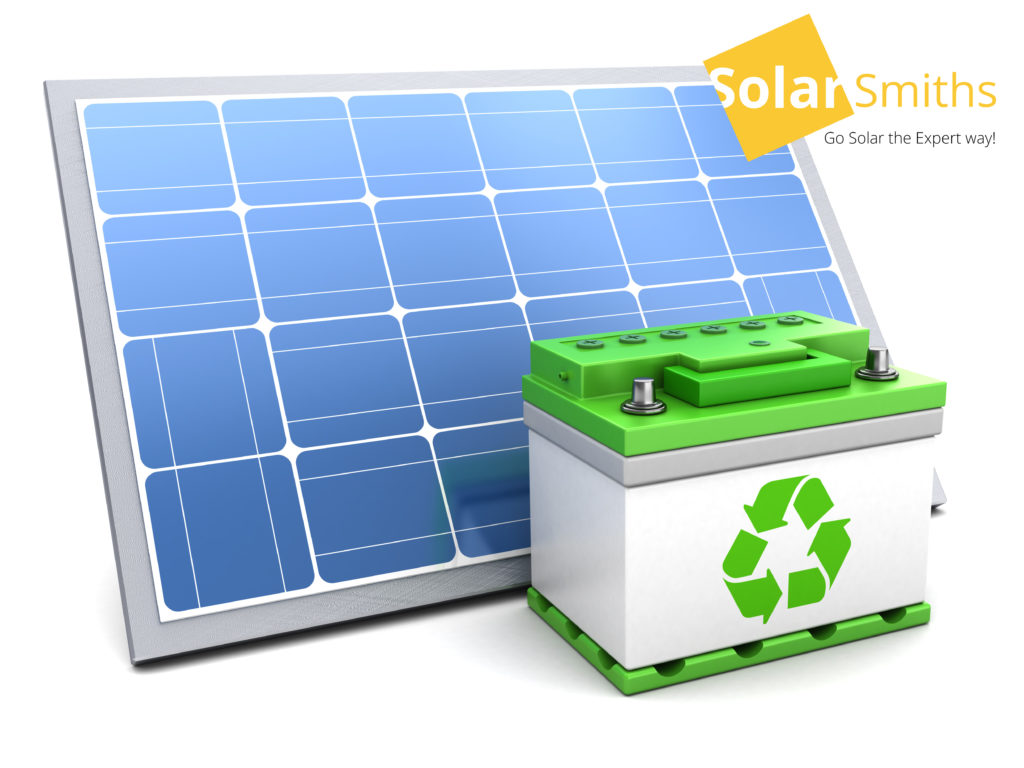The typical Power smith solar energy system will include solar panels, an inverter, equipment to mount the panels on your roof, and a power smith mobile app which will monitor the performance that tracks electricity production siting at one place. The solar panels collect energy from the sun and turn it into electricity, which is passed through the inverter and converted into a form that you can use to power your home or commercial and industrial usage.
1. How is solar energy stored in batteries?
Solar batteries work by storing energy produced by your solar panels and storing it as for later use. In some cases, solar batteries have their own inverter and offer integrated energy conversion. The higher your battery’s capacity, the more solar energy it can store.
When you install a solar battery as part of your solar power system, you are able to store excess solar electricity at your home instead of sending it back to the grid. If your solar panels are producing more electricity than you need, then the excess of energy goes towards charging the battery. When solar power smith panels are not producing electricity, you can draw down the energy you stored earlier in your battery for night use.
Homes and industries with solar smith ASSURE AND CARE+ facilities will help to sustain and maintain the storage of excess solar power onsite for use later when the sun is not shining. As a bonus, since solar batteries store energy at your home or industries, they also offer short-term backup power in the event that there’s a power outage in your area.
2. Capacity & power
The total amount of electricity capacity that a solar smith battery can store, measured in kilowatt-hours (kWh). Solar batteries which are for home can include multiple batteries with our Solar Smith CARE feature system to get additional capacity. Capacity will tell you how big your battery is, and not the amount of electricity a battery can provide at a given moment. To get the full picture, you also need to consider the battery’s power rating, the amount of electricity that a battery can deliver at one time.
A battery with a high capacity and a low power rating would deliver a low amount of electricity but a battery with low capacity and a high-power rating could ru1n your entire home, but only for a few hours
3. Depth of Discharge
It describes the degree to which a battery is emptied relative to its total capacity.
Lot of solar batteries have to maintain certain amount of charging at all times due to their chemical composition. If you utilise complete battery’s charge, its useful life will be significantly shortened. It also affects the length of the battery’s operational life, as well as the total number of kilowatt-hours it will be able to store over that lifetime.
The depth of discharge of a battery refers to the amount of a battery’s capacity that has been used. A higher DoD means you will be able to utilize more of your battery’s capacity.
4. Round-trip efficiency
A battery’s round-trip efficiency represents the amount of energy that can be used as a percentage of the amount of energy that it took to store it. The battery round-trip efficiency is the round trip DC-to-storage-to-DC energy efficiency of the storage bank. The fraction of energy put into the storage that can be retrieved and typically it is about 80%.
A higher round-trip efficiency means you will get more economic value out of your battery.
5. Battery Life & warranty
The general range for a solar battery’s useful lifespan is between 5 and 15 years. If you install a solar battery today, you will likely need to replace it at least once to match the 25 to 30 year lifespan of your solar power system
With Power smith CARE regular annual quality maintenance will significantly increase the life span of battery.
Your solar battery will have power smith PROTECT facility which guarantees a certain number of cycles or years of useful life. As the performance of naturally degrades over time, most manufacturers will also guarantee that the battery keeps a certain amount of its capacity over the course of the warranty. How long your solar battery lasts depends on the brand of battery you buy and how much capacity it will lose over time. If you need a battery which will withstand higher capacity along with time then connect Solar Smith today.




